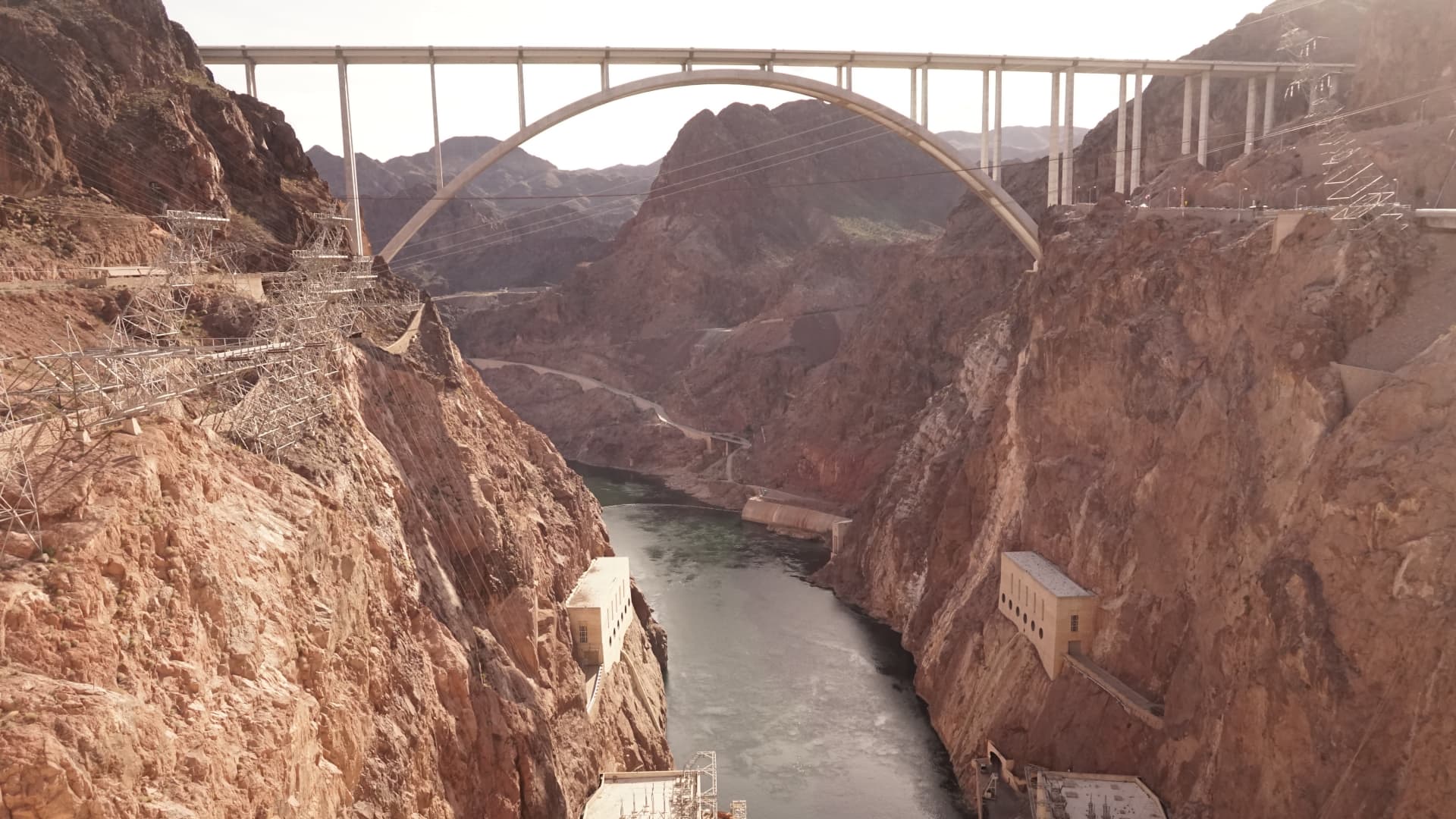The Biden administration on Monday announced that it’s reached an agreement with states reliant on the Colorado River to reduce their water usage temporarily in exchange for at least $1 billion in federal funding, a deal that comes after months of negotiations and some missed deadlines to protect the drought-stricken river.
Under the agreement, California, Arizona and Nevada will voluntarily conserve 3 million acre-feet of water until 2026, amounting to about 13% of those states’ total allocation from the river. The Biden administration will compensate cities, water districts, Native American tribes and farm operators for 2.3 million acre-feet of savings using funding from the Inflation Reduction Act. (An acre-foot of water is about what two average households consume per year.)
The Colorado River supplies water to more than 40 million people and roughly 5.5 million acres of farmland in seven U.S. states. But a combination of prolonged drought, dwindling reservoir levels and increased demand have strained the river. The river’s major reservoirs, including Lake Mead and Lake Powell, have experienced dramatic declines in water levels.
“This is an important step forward towards our shared goal of forging a sustainable path for the basin that millions of people call home,” Bureau of Reclamation Commissioner Camille Calimlim Touton said.
California has the largest allocation of Colorado River water, with roughly 4.4 million acre-feet each year, comprising about 29% of the total allocation. Arizona receives roughly 2.8 million acre-feet per year, or about 18% of total allocation. Nevada’s allocation is approximately 300,000 acre-feet each year, representing around 2% of the total allocation.
The temporary agreement will avoid a situation where the federal government imposes unilateral water cuts on all seven states.
The administration on Monday also agreed to withdraw its environmental analysis from last month that would have required states to cut nearly 2.1 million additional acre-feet of their water usage in 2024. Today’s plan will be finalized after the Interior Department conducts an environmental review.
“Today’s announcement is a testament to the Biden-Harris administration’s commitment to working with states, Tribes and communities throughout the West to find consensus solutions in the face of climate change and sustained drought,” Interior Secretary Deb Haaland said in a statement.
In January, after negotiations reached another standstill, six states submitted a proposal to the Bureau of Reclamation that outlined ways to cut water use, factoring in water that’s lost because of evaporation and leaky infrastructure. California released its own plan.
The Biden administration has previously urged all seven states — Arizona, California, Colorado, Nevada, New Mexico, Utah and Wyoming — to save between 2 million and 4 million acre-feet of water, or up to a third of the river’s average flow.
